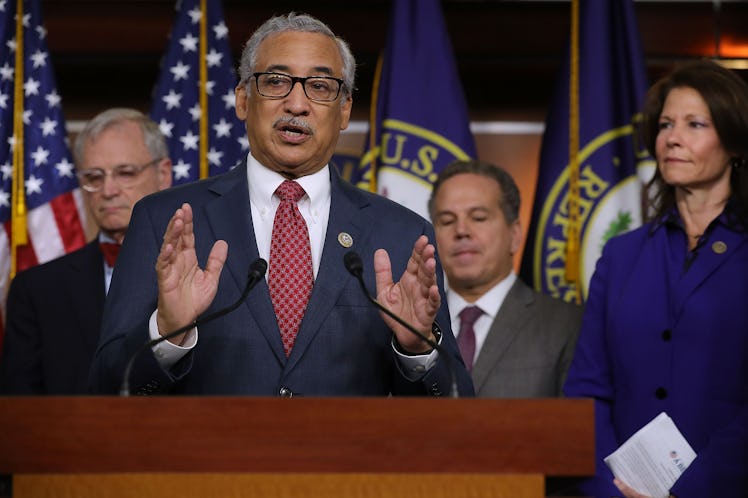
This House Bill Is Proposing Tuition-Free College & It Would Bring Big Changes If Passed
Democrats in the House have introduced a higher education bill that may change the game for those who have yet to embark on their college careers. Tuition-free college is apparently on the table in the new bill. The Aim Higher Act was rolled on Tuesday, July 24 on Capitol Hill by a group of House Democrats.
Collectively, Americans hold over $1.5 trillion in student loan debt, according to May figures from the Federal Reserve. The Democrats' plan lays out how Congress would reauthorize the Higher Education Act of 1965, which is due for reauthorization every five years.
The Aim Higher Act, per the official House page, seeks to make college more affordable for students and their families in a few ways. It would push states invest more in higher education via student aid, expand the loan forgiveness program, and crack down on for-profit institutions. Additionally, the act aims to help students graduate in a timely manner with a "quality" degree. Per the bill summary, it would also invest in programs like career counseling and on-campus child care, streamline the financial aid application, and target access for "traditionally underrepresented students" including homeless and foster students and "Dreamers," or undocumented students protected by the Deferred Action for Childhood Arrivals (DACA) program.
Notably, the bill would create a partnership between states and the federal government to "make an associate's degree at the state's public two-year colleges free for every student."
While the act appears to be a step in the right direction, it may be too soon to pull out the party hats. Substantively, it appears that the bill is more a symbolic gesture than a practical one, as the bill is almost certain to fail in a GOP-majority House. But according to higher education professor Robert Kelchen, quoted in The Washington Post, it's seen as "a litmus test" ahead of the upcoming elections.
The issue of college tuition may be more on voters' radar this year as the November midterm elections approach and House members are up for reelection. Some candidates like Alexandria Ocasio-Cortez have succeeded — even against members of their own party — on a platform that includes a $15 minimum wage, universal health care, and free college, among other policy priorities.
The idea of reducing student loan debt and enacting free education is a hot topic on the hill right now, as the Congressional Progressive Caucus also addressed the issue, rolling out its "People's Budget" this week.
Meanwhile, a bill proposed by House Republicans, per the Post, sought to scale back some of those aid programs, resulting in what the Congressional Budget Office estimated would be a loss of $15 billion in federal aid given to students over the next decade. The GOP's "PROSPER Act" was advanced in December 2017.
It remains to be seen how the Aim Higher Act and any reauthorization of the Higher Education Act will play out in this Congress, given what appear to be conflicting priorities for student loan debt, and what that might mean for student's balances.